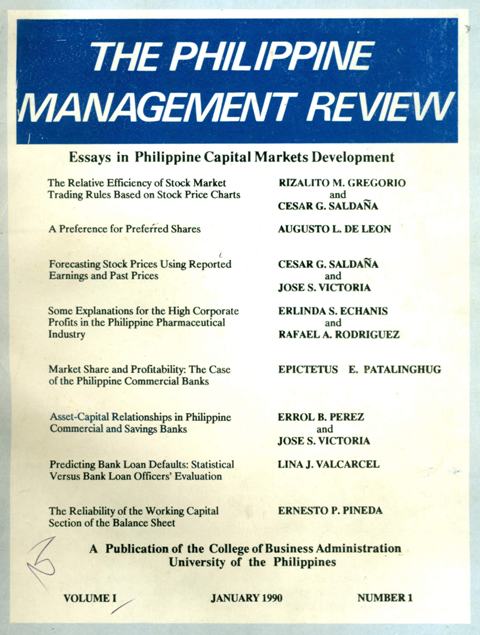The Relative Efficiency of Stock Market Trading Rules Based on Stock Price Charts
Abstract
The Philippine stock market has long suffered from an “image problem” – that it is a speculator’s market, and not even a “fair game” one at that. This paper investigates whether the market corresponds to a “fair game” or efficient market. Under a fair market, competition among investors based on readily available information ensures that prices move only because of new information (“news”). This implies that prices do not follow a pattern, as in cyclical and “manipulated” prices. The experiment described in the paper tests whether or not a chart-based trading approach like moving average can outperform or beat the market. The results suggest that the stock prices in the Stock Exchanges do not follow a pattern (at least of the type analyzed) and it is not profitable to use the moving average method to beat the market. One implication of the study is that the investors should ignore suggestions by technical analysts based on price charts. On the average, an investor could not do better than make a forecast of economic industry conditions, buy stocks on that basis and hold them over his planned investment period.
